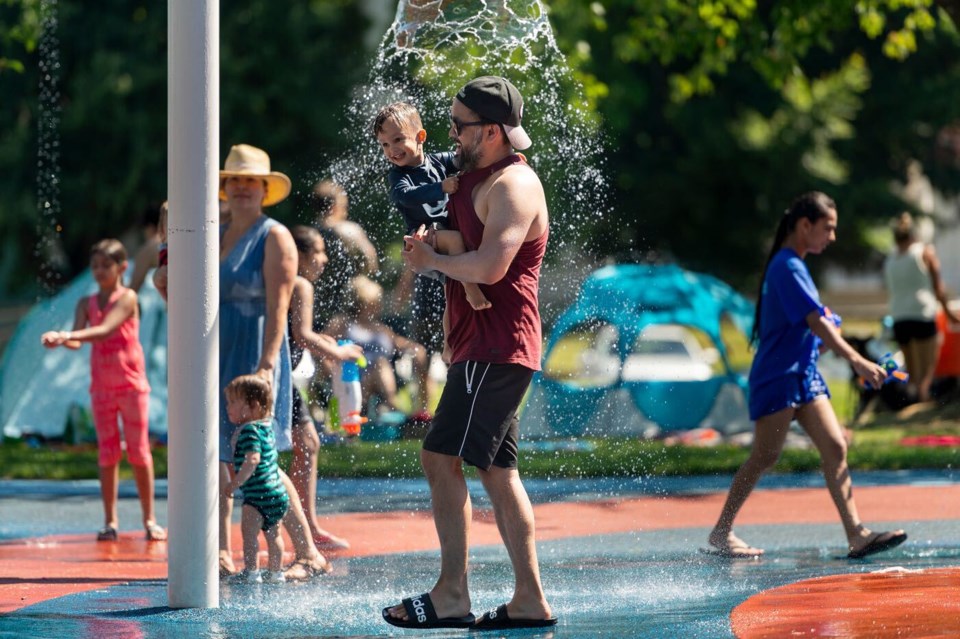In the aftermath of a deadly heat wave that has overwhelmed emergency services and appears to have claimed scores of lives, Metro Vancouver has another dire warning: Conserve water before it’s quickly depleted.
On Sunday, June 27, water consumption hit near-record levels after residents cranked open taps and hoses to release 1.79 billion litres from local reservoirs. That’s just shy of the all-time daily record of nearly two billion litres set in 2009.
"It’s unprecedented to see such high water demand so early in the summer," says Malcolm Brodie, chair of Metro Vancouver’s water committee, in a written statement.
The regional body is calling on residents to curb plans to water lawns and wash cars during the heat wave so that there is enough drinking water for the rest of the summer season.
Drought conditions have been building across much of western North America for months now. But the latest heat wave is something else: a heat dome usually sitting on top of the U.S. southwest has expanded northward with unprecedented intensity and duration.
By Wednesday, the worst of the heat wave had migrated east of B.C.’s South Coast on its way to Alberta. But Environment Canada scientists say the respite is only temporary.
“It’s not that we’re going to be going back to seasonal normals,” warns Armel Castellan, a warning preparedness meteorologist with Environment Canada. “We’re still five to 10 degrees above normal.”
Castellan says above-seasonal average temperatures are predicted to continue through the summer and into September.
That all lines up with climate change models, which show B.C. suffering deepening summer drought conditions and searing temperatures, with winters dominated by more extreme rainfall events. All of that means a lower annual snowpack and therefore a diminished ability to recharge the regions three water reservoirs — Coquitlam, Seymour and Capilano — over the hottest months.
Metro Vancouver’s long-range climate projections indicate that the region can expect more than double the number of summer days above 25 C. The region is also expected to face a water crunch in the coming decades as population growth outstrips a water supply made increasingly uncertain by a changing climate.
As Deborah Curran, who heads the University of Victoria Environmental Law Centre put it earlier this spring: Re-balancing public interest means there’s no right to water our lawn or wash our car.
“There has to be a cultural change. We are past the era of unrestricted water use — simply, that era is gone.”
While Curran was talking about introducing water metering across the region, “unrestricted” is not entirely accurate. Until Oct. 15, residential lawn watering is allowed twice a week, only in the mornings.
Metro Vancouver’s drinking water reservoirs remained within “normal range” as of June 29. But like the regions staged watering restrictions, that could quickly change throughout a hot, dry summer.



